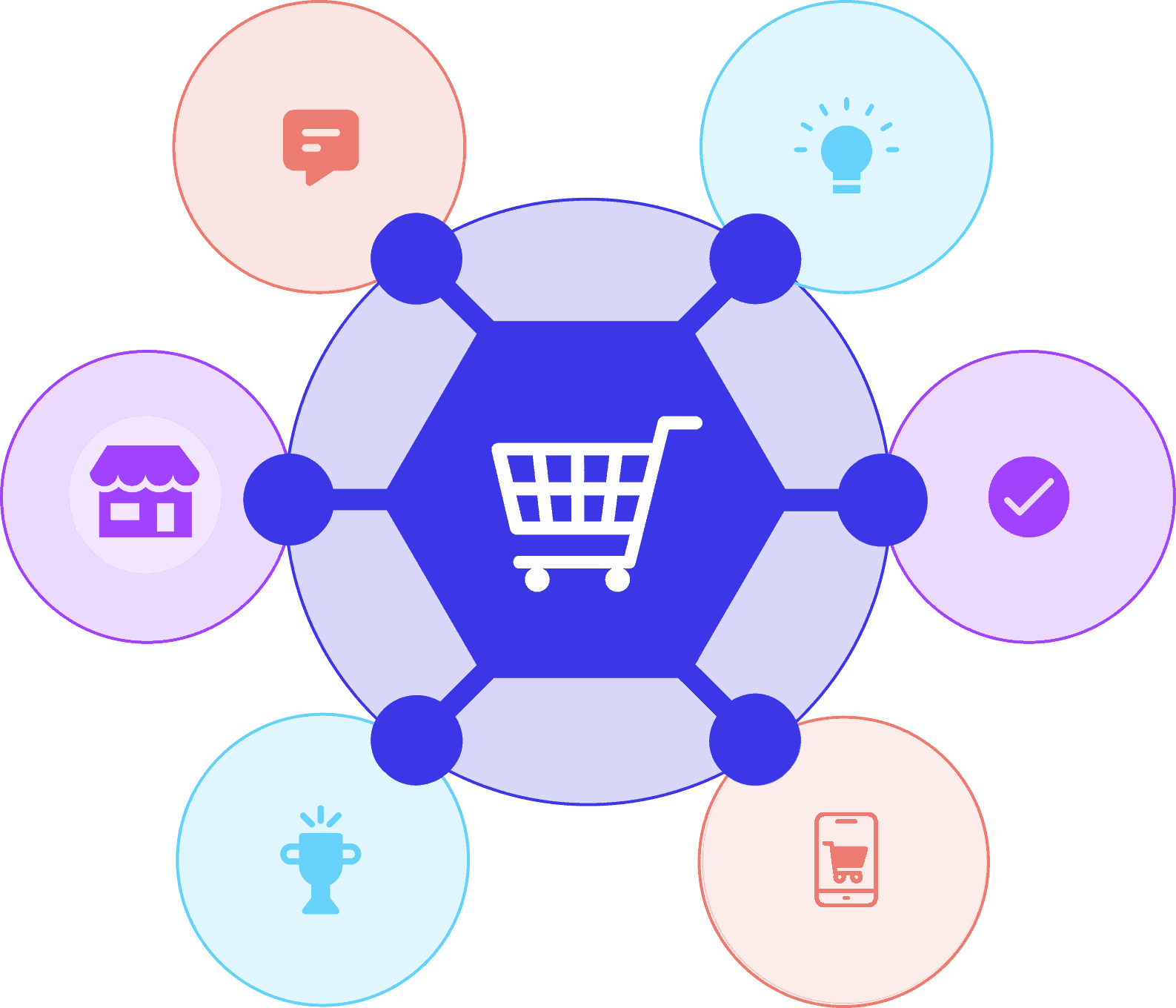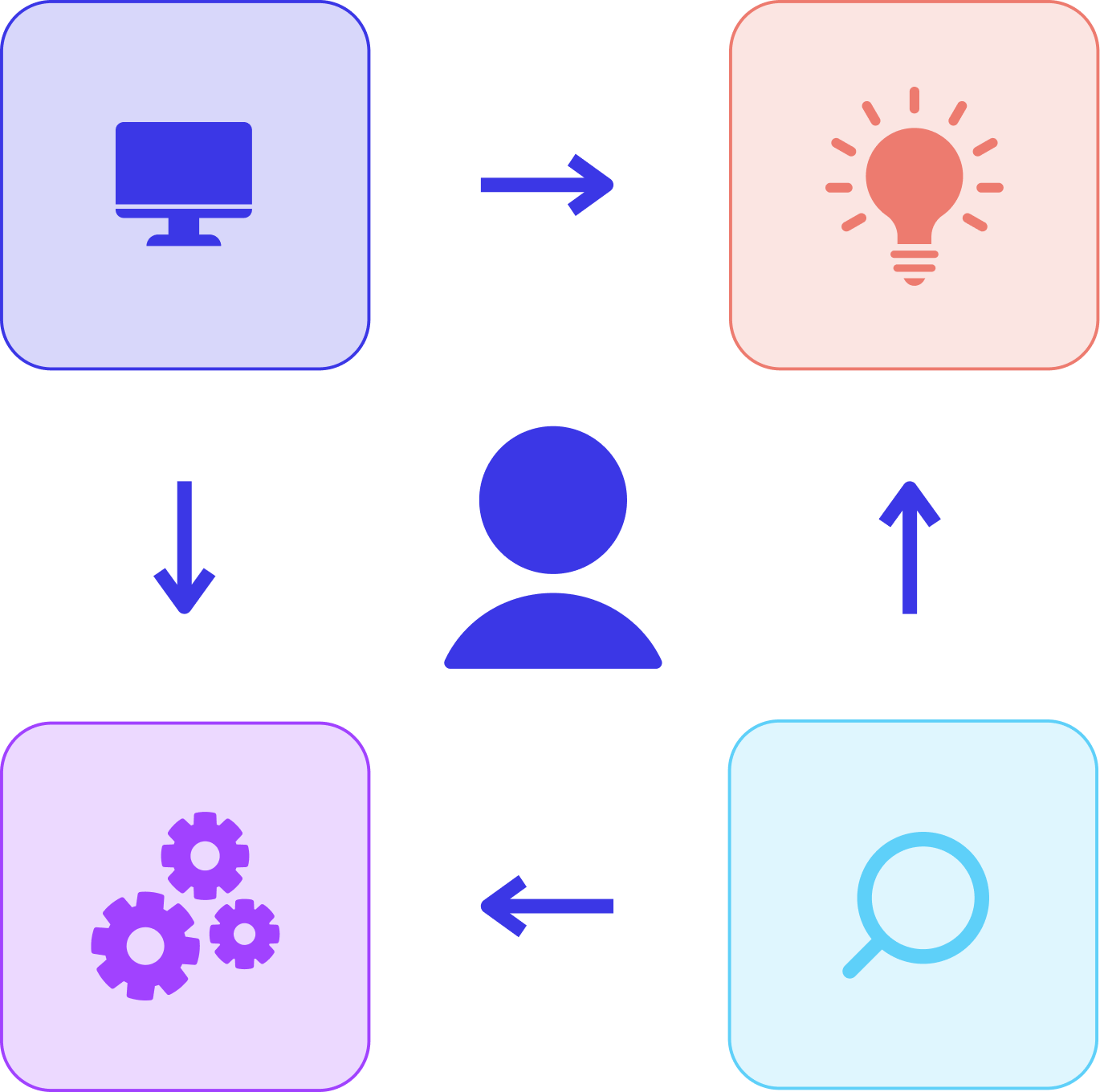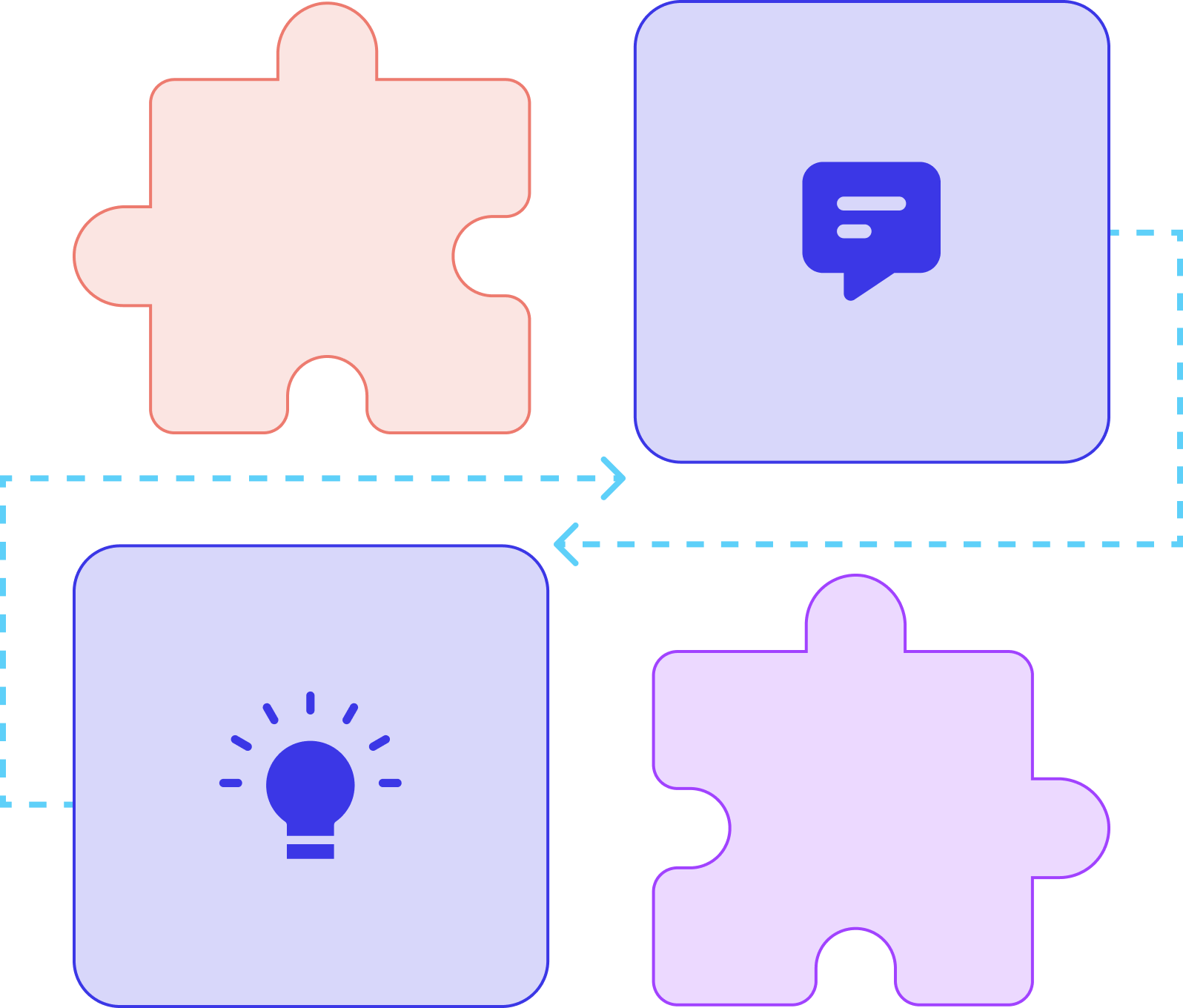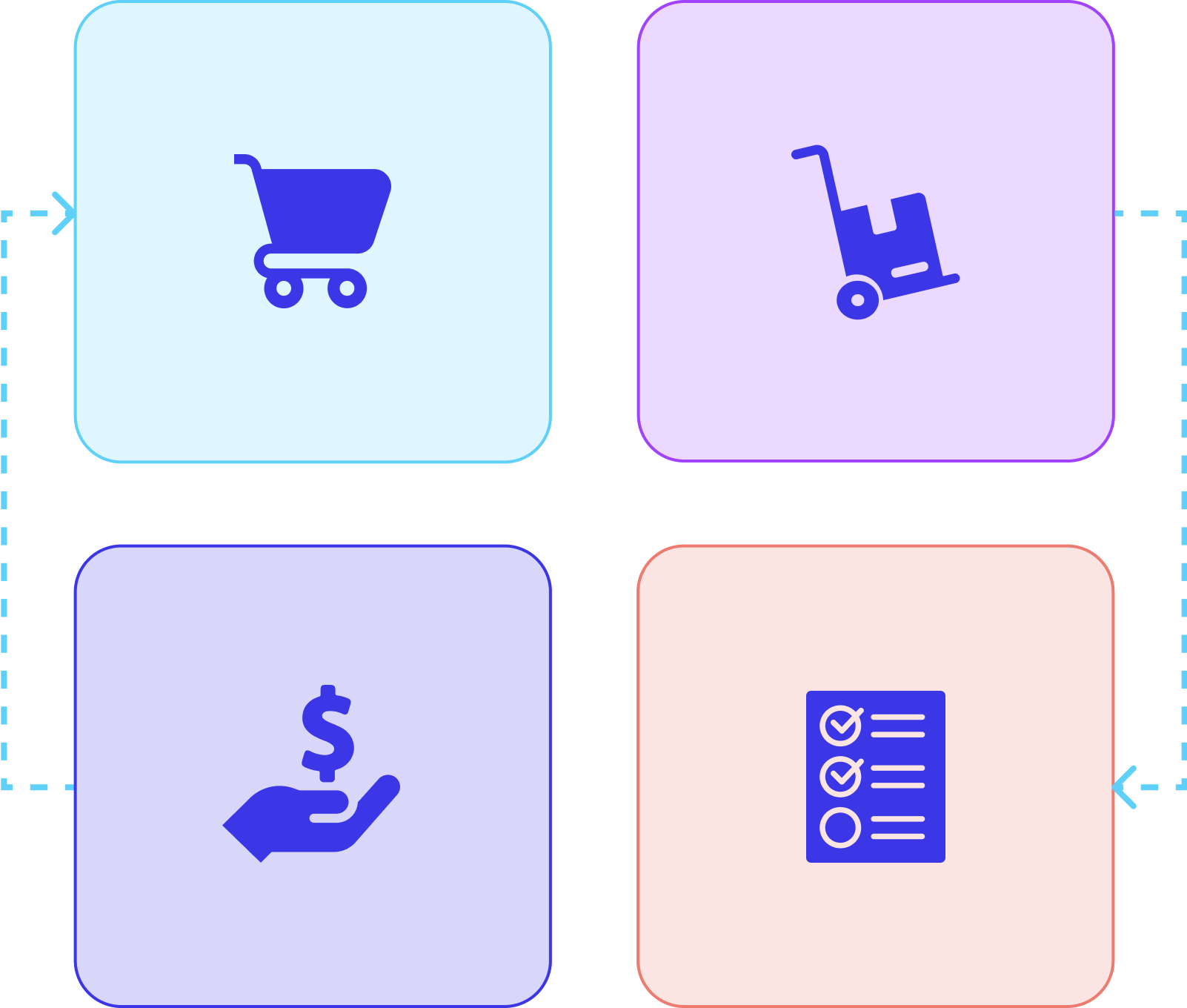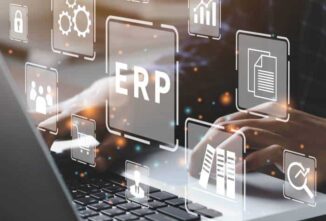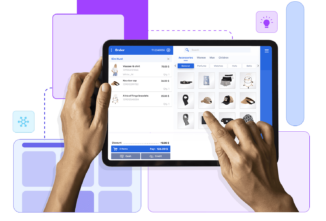What is Omnichannel Retail?
Omnichannel retail is an effective strategy for retailers to enable consistent and seamless shopping experiences across channels. It allows customers to switch between various digital and physical touchpoints before purchasing. This helps them restart their buying journey from where they left off while enjoying a consistent shopping experience at all stages. This greatly differs from multichannel retail, which merely makes products available on multiple touchpoints.
To enable this, omnichannel retail strategy syncs data across different touchpoints in real-time through a centralized and single source of truth. In addition, it actively adapts and evolves in alignment with changing customer journeys across different touchpoints.
Hence, in addition to syncing data in real-time, omnichannel retail strategy also enables consistent and seamless backend operations and inventory management.
Why Omnichannel Is the Future of Retail
Although the term “omnichannel” is used loosely in the industry, it is not just a buzzword, as many have come to assume. Instead, it represents the retail industry’s paradigm shift toward a customer-centric and hyper-personalized business approach. While B2C companies have already begun to adopt an omnichannel strategy, B2B sales will quickly follow suit according to a recent McKinsey report. In other words, omnichannel is already here and every business will need to adopt this strategy if they haven’t already. There are many reasons for this, such as:
Customers increasingly use multiple devices and channels before making a purchase.
The physical and digital worlds are getting blurred, especially with the advent of augmented reality (AR).
There is an increased customer expectation for hyper-personalized shopping solutions.
A growing tendency towards sharing shopping experiences online and being influenced by social media’s community features.
These trends show that omnichannel retail strategy is not just a passing fad or a buzzword but a necessity for retailers who must be present for customers anywhere, anytime. One can further propose that omnichannel retail is more than just a strategy. Instead, it is the only way to do retail business on multiple available touchpoints.
A Multichannel Retail Experience For Customers is not enough
A multichannel retail experience allows businesses to sell their products on multiple touchpoints. This helps them to be present where their customers are. With most customers using various devices and platforms to purchase, a multichannel retail experience is a stepping stone to reach the true omnichannel experience. For instance, customers can purchase products on websites, physical stores, social media apps, etc.
However, it’s important to note that data is not synced between touchpoints, resulting in a less-than-perfect shopping experience. Moreover, customers have begun to expect more personalized and frictionless shopping experiences. Hence, retailers often find that the multichannel retail experience is just not enough anymore. On the contrary, it results in poor shopping experience, delays in shipments, and multiple customer complaints for your support team to handle.
The need of the hour is a retail strategy that updates each interaction and shopping behavior in real-time regardless of the touchpoint a customer chooses at any given time.
Omnichannel Vs. Multichannel Retailing
Omnichannel retail is an approach that centers on customer experiences and ensures they have a seamless shopping experience across channels. In contrast, multichannel retail is a product-oriented strategy that helps retailers sell their products at different touchpoints.
While omnichannel retail focuses on centralizing data and updating it in real-time to make the shopping experience frictionless, multichannel retail focuses on making products visible and accessible on different platforms.
Omnichannel retail strategy goes further and ensures that all backend operations and inventory management align with customers’ buying journeys.
Comparing Single-Channel and Omnichannel Retail
Single channel retail is a strategy in which retailers make their products available to customers through a single distribution option. It could be online, face-to-face selling, traditional retail, or something more contemporary like social media. While this helps retailers reduce their marketing investments and dilution efforts, it also risks losing customers due to unavailability on all channels.
Omnichannel strategy ensures that customers can shop where and how they want at their own pace. It allows them to chart their buying journey while ensuring that data, backend operations, and inventory management are synced in real-time for a seamless shopping experience.

